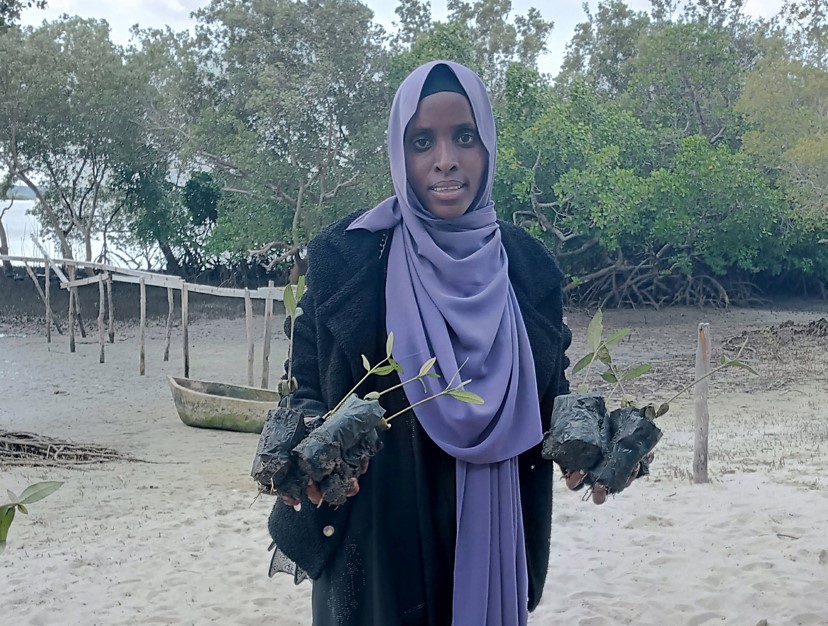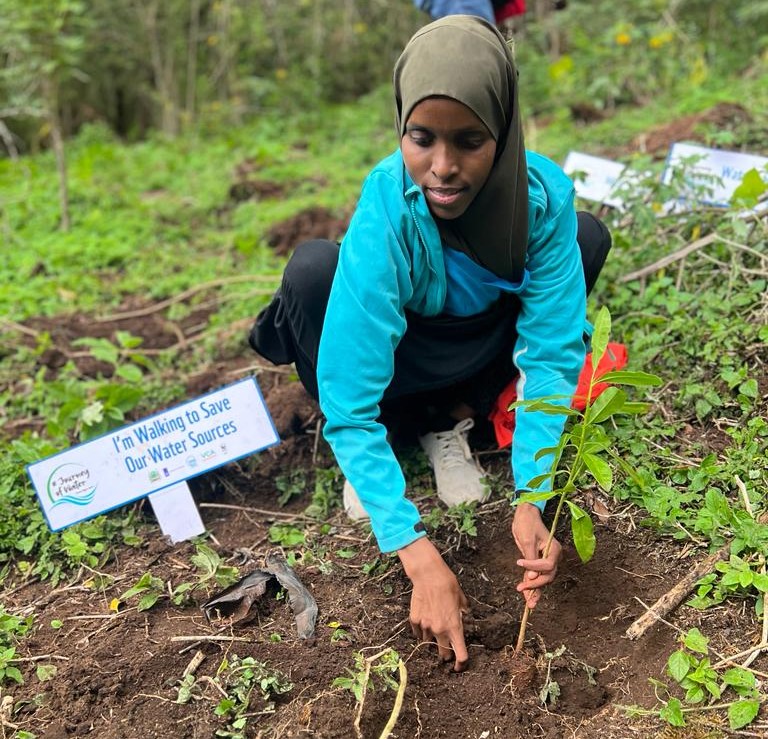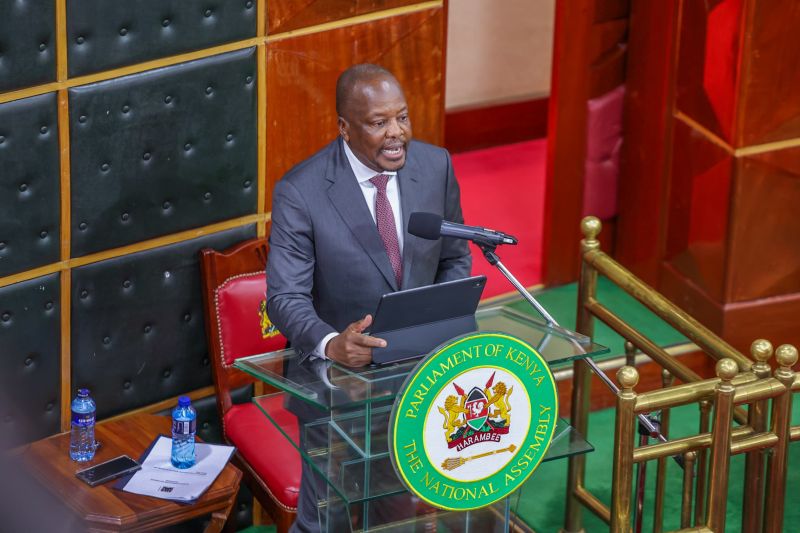How a young woman is changing northern Kenya's climate story

Aged just 21 and a climate justice activist, Rukia is on a daring mission to change the climate story of the northern frontier region.
When Rukia Ahmed first arrived in Nairobi from Wajir, the big difference in weather and climate she experienced wowed her. She learnt that her childhood had been a bit difficult, partly because of unbearable weather patterns that sometimes made it difficult for learners to attend afternoon classes.
Now aged 21 and a climate justice activist, Rukia is on a daring mission to change the climate story of the northern frontier region.
More To Read
- Supporting Africa’s drylands: Insights from the pastoralists who call them home
- What’s at stake in the COP30 negotiations?
- Major global emitters off track, no country strong enough to meet climate targets - report
- African activists rally and challenge COP30 agenda
- Ethiopia hosting COP32 a ‘win for the Horn of Africa’, IGAD says
- Power utilities raise clean energy investment plans by 26 per cent in major Net Zero push
She attended Islamic Call Foundation Primary School in Wajir before joining Our Lady of Mercy Girls Secondary School in Shauri Moyo, Nairobi in 2021. It is here that she nurtured the passion to advocate for an environment that is human-friendly.
“When I came to Nairobi for my secondary school education, I saw a big difference in terms of the environment. When I was in Form Two, I attended a climate conference at the Catholic University of Eastern Africa where I learnt that there is something I could do for my community,” says Rukia.
She started planting trees in Wajir whenever she went on holiday. But she realised that her community was highly affected by climate change and the solution was beyond mere planting of trees.
She realised that residents of the northern frontier suffered from the adverse effects of climate change.
 Rukia Ahmed started planting trees in Wajir whenever she went on holiday. (Photo: X/Rukia Abdi)
Rukia Ahmed started planting trees in Wajir whenever she went on holiday. (Photo: X/Rukia Abdi)
“Northern Kenya sometimes suffers from drought that is causing massive deaths of livestock, which is the main source of income for the pastoralist communities living in the region. As a result, children also suffer from malnutrition while women travel miles to find water for their families, and families take turns to eat, doing their best to cope with food insecurity.”
Other factors like marginalisation, poverty, weak institutions, poor infrastructure, lack of information, poor access to financial services, and resource-based conflicts affect the ability of residents of northern Kenya to cope with climate change.
Accountability
Rukia wants those responsible for making the environment inhospitable held accountable.
According to her, climate justice demands that those responsible for causing the crisis be held accountable, and those mostly affected must get adequate support to adapt to the problems and mitigate them. In many parts of the region, rains come with the threat of raging floods and with it the loss of shelter. Other effects are disease, death, and loss of harvest.
My story was featured by The @Eastleighvoice.I am happy to be leading climate action in a community that's highly affected by climate change,the ongoing floods and extreme droughts a few months ago is a clear indication of the effects of climate change.We need immediate action! pic.twitter.com/J180vXCdGD
— Rukia Ahmed(The hummingbird) (@RukiaAhmed101) April 29, 2024
Rukia, who is studying for a Bachelor of Education degree at Mt Kenya University majoring in Mathematics and Biology, leads tree planting drives in the northern frontier region and is also an astute speaker on climate justice matters.
She believes that the climate crisis is a human tragedy. She argues that countries in Africa are least responsible for causing climate change, but are among the most affected.
She notes that Africa is the world’s second-largest continent – and yet it today accounts for less than four per cent of global emissions, according to the International Energy Agency, and almost zero per cent of historical emissions.
Rukia has volunteered for various organisations and this won her the opportunity to attend the 2022 United Nations Climate Change Conference or COP27 in Sharm El Sheikh, Egypt.
“I also attended a youth gathering referred to as the Climate Justice Camp held by Greenpeace International in Nabeul, Tunisia,” says Rukia.
 Rukia Ahmed during the 2022 United Nations Climate Change Conference or COP27 in Sharm El Sheikh, Egypt. (Photo: X/Rukia Ahmed)
Rukia Ahmed during the 2022 United Nations Climate Change Conference or COP27 in Sharm El Sheikh, Egypt. (Photo: X/Rukia Ahmed)
She started the Green North Eastern Initiative, a community-based organisation that works towards building climate resilience in communities in the northern frontier.
“I partner with schools and plant trees with the help of teachers and learners. I started in Wajir County but this has since spread to Mandera and Garissa where close to 10,000 trees have been planted,” says Rukia.
Rukia observes that weather patterns in northeastern Kenya have changed drastically, threatening livelihoods.
“Our country depends on rain-fed agriculture. Farmers keep suffering losses due to unpredictable weather conditions. They have no one to turn to for compensation and they do not know enough about the impact of the climate crisis to try to address it.”
She says there is a need for a paradigm shift from energy systems based on fossil fuels to more sustainable and renewable energies such as wind and solar power.
“Over the years, we have failed to implement policies and regulations that hold companies and governments accountable for emissions and the resulting climate damage. Action has become more urgent than ever,” says Rukia.
If not tackled effectively, Rukia warns that climate change is threatening to reverse Kenya’s progress on poverty reduction and will exacerbate economic and social inequality.
Her activities come at a time when women in Kenya are identified as the most vulnerable to the effects of climate change.
Top Stories Today
















































